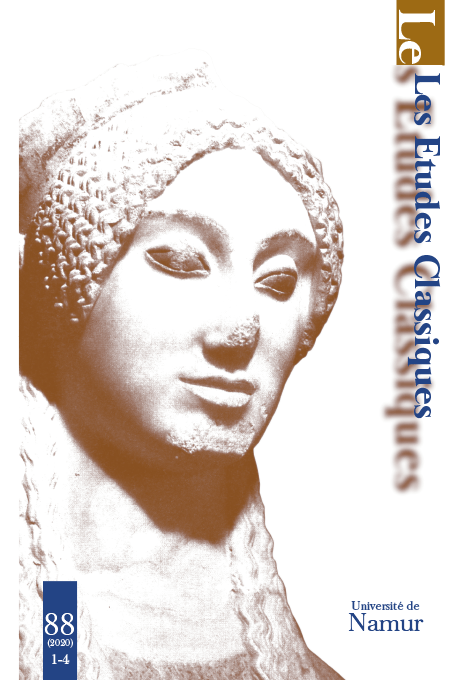 previous article in this issue previous article in this issue | next article in this issue  |

|
Document Details : Title: Roman Models and Contemporary Experience in Johannes Brantius's Image of the Perfect Senator (1633) Author(s): VAN HOUDT, Toon Journal: Les Études Classiques Volume: 88 Issue: 1-4 Date: 2020 Pages: 383-403 DOI: 10.2143/LEC.88.1.3290454 Abstract : In 1633 the Antwerp humanist and lawyer Jan Brant (Johannes Brantius) published his lengthy treatise Senator sive de perfecti et veri senatoris officio libri duo. While it belongs to the sub-genre of so-called mirror-for-counselors, it distinguishes itself from other treatises on the same subject by its strong emphasis on a local, specifically Antwerp perspective and its unmistakably Ciceronian flavor. As I will try to show, Brantius aimed to revive the Ciceronian language of civic humanism in an age that was profoundly imbued with a strongly Tacitean political discourse. En 1633, l’humaniste et magistrat anversois Jean Brant (Johannes Brantius) publia son traité Senator sive de perfecti et veri senatoris officio libri duo. En tant que tel, le travail appartient au sous-genre des miroirs de conseillers qui fleurissait aux XVIe et XVIIe siècles. Comme nous essayons de le démontrer, le traité de Jean Brant se distingue d’autres miroirs de conseillers par la perspective nettement locale et anversoise adoptée par l’auteur, ainsi que par sa touche cicéronienne. En effet, Brantius essayait de faire revivre le langage cicéronien de l’humanisme civique à une époque profondément empreinte d’un discours politique tacitéen. |
 |
